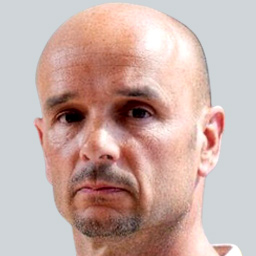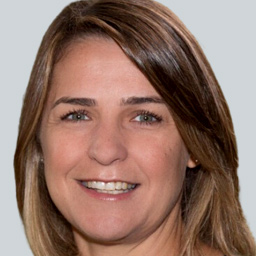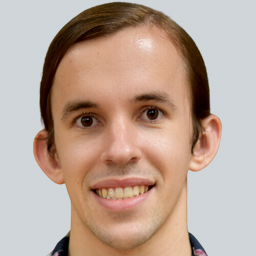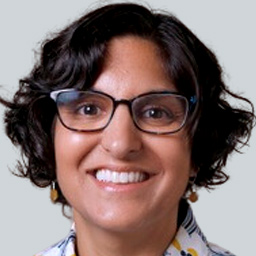ActiGraph Awards Digital Endpoint Accelerator Research Grants to Advance Digital Clinical Measures
ActiGraph launched the Digital Endpoint Accelerator Research “DEAR” Grant to validate fit-for-purpose uses of DHTs in clinical populations. After receiving an overwhelming number of impressive applications and completing a rigorous selection process, we are excited to announce that five DEAR Grant recipients have been selected!
“Validation evidence of wearable measures in clinical populations is not always available and represents a gap for fit-for-purpose use of wearables in clinical research,” says Christine Guo, PhD, Chief Scientific Officer at ActiGraph. “We are thrilled with the overwhelming response to our grant call and excited to partner with our research community to bridge this gap. Evidence generated from these studies will accelerate the adoption of wearable data as patient-centered outcomes on physical functioning, functional mobility. and sleep in clinical trials and care."
Each selected research project will be granted financial support along with wearable DHT devices and software to conduct the research. ActiGraph will also support the study teams with multidisciplinary expertise across engineering, data science, and clinical science. These collaborations have the power to accelerate the use of digital clinical measures and enable more efficient, patient-centric development of life changing treatments.

John Buckley, PhD
Assessing Fall-Risk in Older Adults
Dr. John Buckley is a Reader in Movement Biomechanics in the Department of Biomedical and Electronics Engineering at the University of Bradford, teaching courses in clinical movement analysis, biomechanics, and rehabilitation engineering. He is also a Clinical Scientist at the Health Professions Council, a member of the International Society for Posture and Gait Research, and a Fellow of The Higher Education Academy. His main area of research focus has been clinical biomechanics and human movement, particularly with individuals experiencing musculoskeletal issues and/or sensory decline.
Ankle function provides a key contribution to everyday activities, particularly ascending and descending stairs, where many falls occur. With the DEAR Grant, Dr. Buckley and his research team will determine how actigraphy could be used to easily measure the performance and variability of ankle strength, function, and endurance assessments in older adults to help inform fall risk.

Nicole Freene, PhD, FHEA, GCTE
Physical Activity in Cardiology
Dr. Nicole Freene is an Associate Professor in Physiotherapy at the University of Canberra. She is also a practicing physiotherapist, the co-chair of the Asia-Pacific Society of Physical Activity Special Interest Group Physical Activity in Healthcare, and the Cardiorespiratory Lead of the Australian Physiotherapy for Physical Activity group. Her main area of research focus has been prevention of chronic disease through increased physical activity and decreased sedentary behavior, particularly in cardiac and pulmonary rehabilitation.
With the DEAR Grant, Dr. Freene and her research team will identify heart disease-specific accelerometer cut-points that will allow the disease-specific relationship between physical activity and health outcomes to be accurately established. This will guide future physical activity recommendations and interventions, helping more people live longer and healthier after a cardiac event.

Cory Holdom
Functional Mobility Assessment in Amyotrophic Lateral Sclerosis
Cory Holdom is a PhD student at the University of Queensland, working in motor neuron disease (MND) research. He has a Bachelor of Biomedical Sciences with a specialization in neurology and developmental biology. His main area of research focus has been understanding the impact of MND on the patient, primarily through evaluating novel biomarkers for the disease and learning about patient perspectives.
MND is complex and often characterized by progressive wasting and paralysis in muscles. Actigraphy offers a promising opportunity for reliable, meaningful measures of MND progression. With the DEAR Grant, Holdom and his research team will validate actigraphy-derived measures of gait that can be applied in future MND clinical trials.

Alon Kalron, PhD, PT
Reproducibility and Validity of Sensor-Derived Gait Measures in Multiple Sclerosis
Dr. Alon Kalron is a Senior Lecturer and Chair of the Department of Physical Therapy at Sackler Faculty of Medicine, Tel-Aviv University. He also serves as Head of the Physical Rehabilitation Research Unit at the Multiple Sclerosis Center within Sheba Medical Center. His main area of research focus has been physical activity, cognition, gait and balance in the neurological population, particularly people with multiple sclerosis (MS).
With the DEAR Grant, Dr. Kalron and his research team will validate spatio-temporal gait output data in people MS. They will also examine the relationship between ActiGraph spatio-temporal gait data with the level of disability, fear and history of falling, and perceived impact of MS on mobility.

Sarika Peters, PhD
Sleep in Down Syndrome
Dr. Sarika Peters is a psychologist and co-director of the Behavioral Phenotyping Core of the Vanderbilt Intellectual and Developmental Disabilities Research Center. She has been using wearable sensors to track sleep and activity in Down Syndrome (DS), Rett Syndrome, and Rett-Related disorders. Her main area of research focus has been detailed behavioral and neurophysiological characterization of neurogenetic disorders with overlapping intellectual disability.
With the DEAR Grant, Dr. Peters and her research team will develop a specific algorithm for measuring sleep-based outcomes in DS and test its analytical and clinical validity against commonly used outcome measures in DS, such as PSG. This approach will help determine whether actigraphy can be used more broadly to diagnose and treat sleep problems, and whether it could be applied in future DS clinical trials.